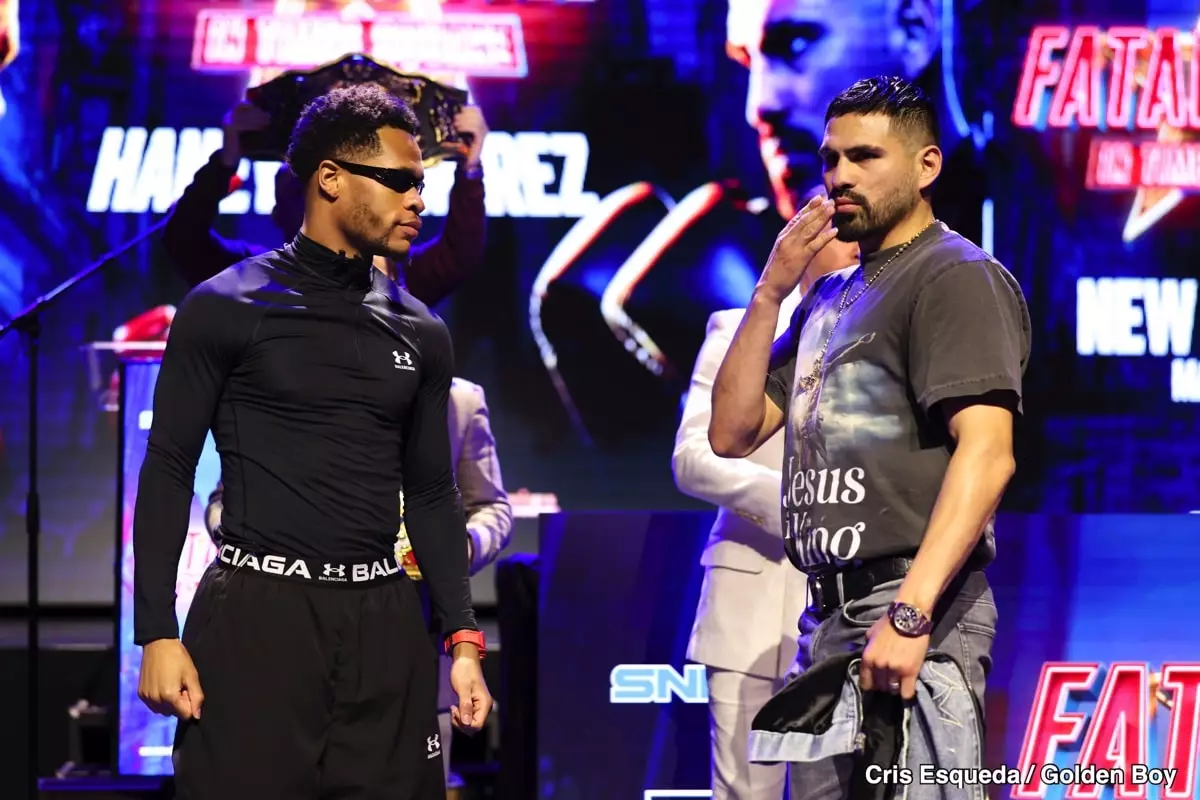In the ever-shifting landscape of professional boxing, the choice of an opponent can significantly alter a fighter’s trajectory. The recent comments by Gabe Rosado regarding Devin Haney’s decision to face Jose Ramirez have raised eyebrows and provoked discussions around the strategic insight and long-term implications of such decisions. After experiencing a setback against Ryan Garcia and a lengthy year-long hiatus, Haney’s selection of Ramirez, a former world champion, as his comeback opponent may be perceived as risky. Rosado’s assertion that this was the “wrong choice” merits a closer examination of not only the implications for Haney but also for the boxing community that surrounds him.
The Significance of Timing and Foe
Devin Haney’s decision comes at a pivotal moment in his career. Having tasted defeat and spent an extended period outside the ring, the stakes surrounding his return are undeniably high. While it is commonly believed that fighters should ease back into competition after a loss and a long absence, Haney diverges from that conventional wisdom by opting for a seasoned and dangerous opponent in Ramirez. This decision reflects either a remarkable self-confidence or a troubling underestimation of his adversary. Ramirez’s proven knockout power and formidable skill set, evidenced by his previous championship reign, elevate the challenge Haney faces upon reentering the squared circle.
Rosado’s critique speaks to this dichotomy. As an experienced fighter himself, he understands that the mental aspect of returning to the ring post-defeat is just as crucial as physical readiness. A comeback against a less formidable opponent might have served Haney better, allowing him to regain confidence, properly assess his capabilities, and refine his strategy. Facing someone with Ramirez’s pedigree risks not just the fight but, more critically, Haney’s standing in the boxing hierarchy should he falter again.
Assessing Ramirez’s Current Form
It may be easy to write off Ramirez based on his recent losses to Arnold Barboza Jr. and Josh Taylor, but such assessments can be misleading. His near-miss against Barboza, particularly in a closely contested match, illustrates that he is still a competitor who poses significant challenges to anyone stepping into the ring with him. Rosado points out that Ramirez delivered a strong performance despite the loss, albeit in a match that could have easily swung in his favor had the rounds been extended. This further complicates Haney’s comeback narrative.
The expectation of success against Ramirez is built on the assumption that a fighter’s past defeats define their future. Yet, the history of boxing is replete with examples of fighters who rebound from setbacks to reclaim their form and status. Ramirez’s competitive nature should not be underestimated, and Haney would do well to understand that he may be facing an emotionally charged opponent looking to prove his own worth after a setback.
The Broader Implications for Haney and Boxing
Fans’ and analysts’ reactions to Rosado’s commentary reflect more significant concerns about the mental preparation and philosophy surrounding fighters’ decisions after losses. In the unpredictable world of boxing, the aftermath of defeat can be a pivotal point that defines a fighter’s career. The legacy they build is not merely based on victories but also on their ability to confront adversity and rebound strategically.
Haney’s lawsuit against Garcia after their fight has left many questioning his mindset and maturity. It raises critical questions about his approach to handling setbacks and his readiness to return to high-stakes competition. Rosado, while expressing disappointment in Haney’s reaction, suggests that true champions should embrace losses as opportunities for growth rather than engage in legal disputes. The scrutiny of such actions reveals a demanding expectation from fans and experts alike who seek not just the physical prowess of athletes but also their psychological resilience.
Ultimately, the boxing community will be watching closely as May 2nd approaches and the repercussions of Haney’s choices begin to unfold. Whether he emerges victorious or faces further setbacks, the repercussions of his comeback will undoubtedly echo throughout his career and influence the broader discourse on risk in the sport.


Leave a Reply